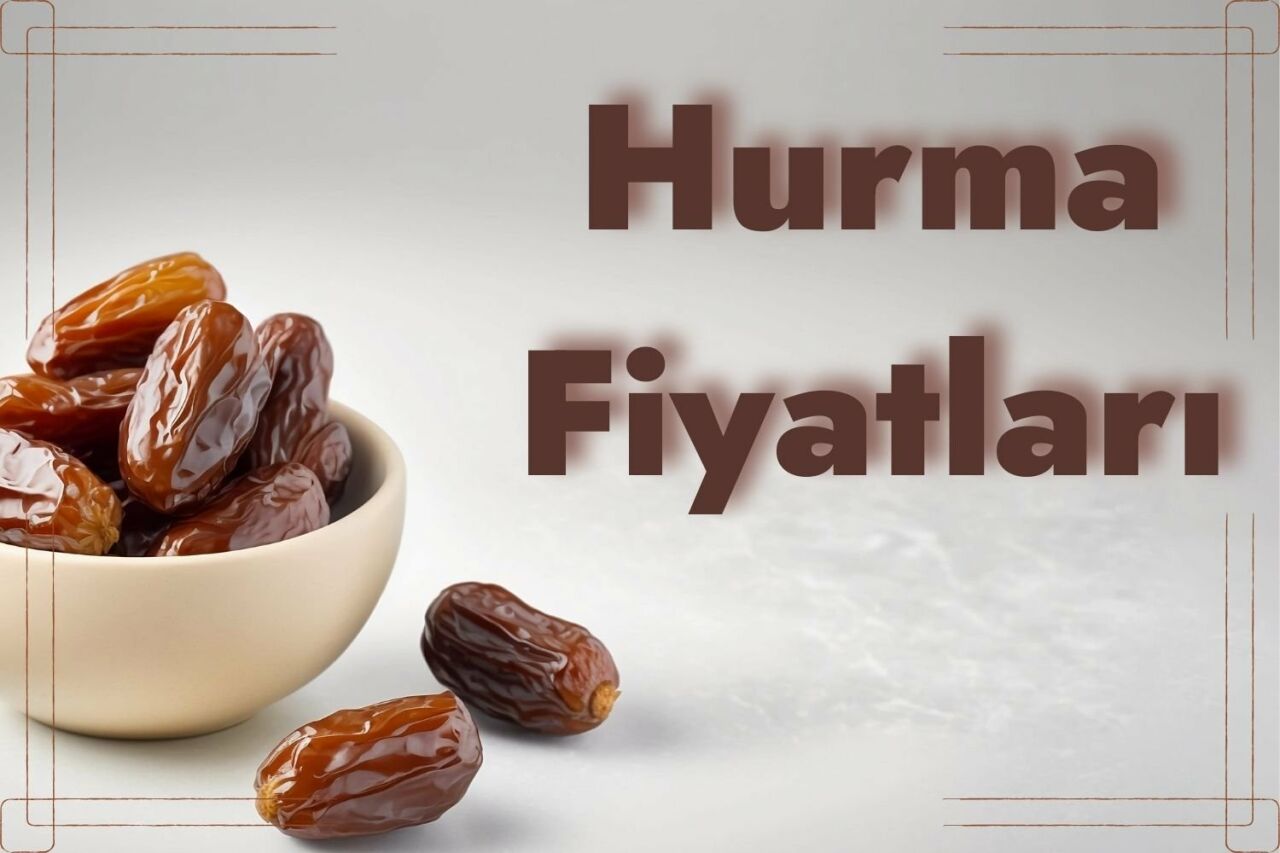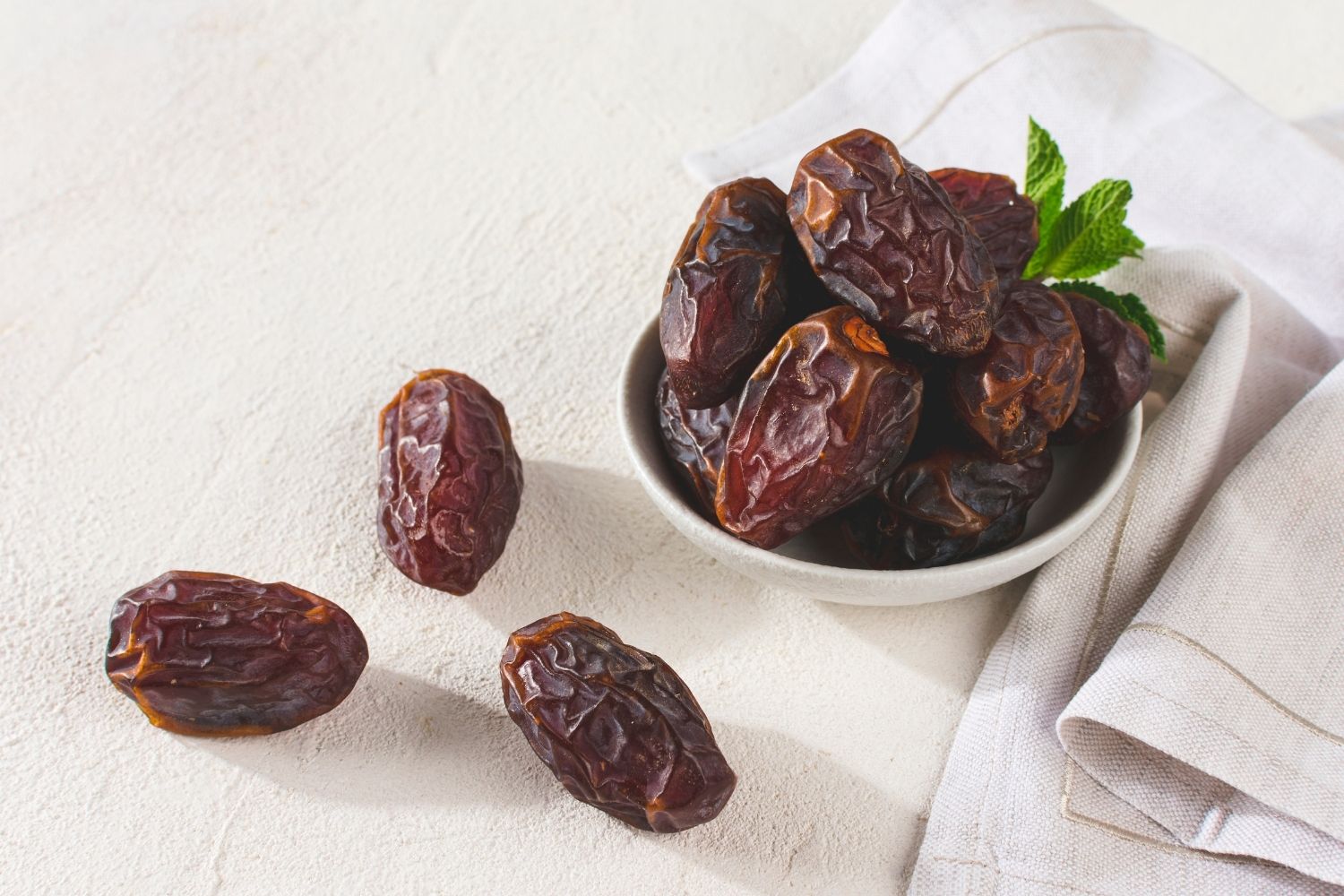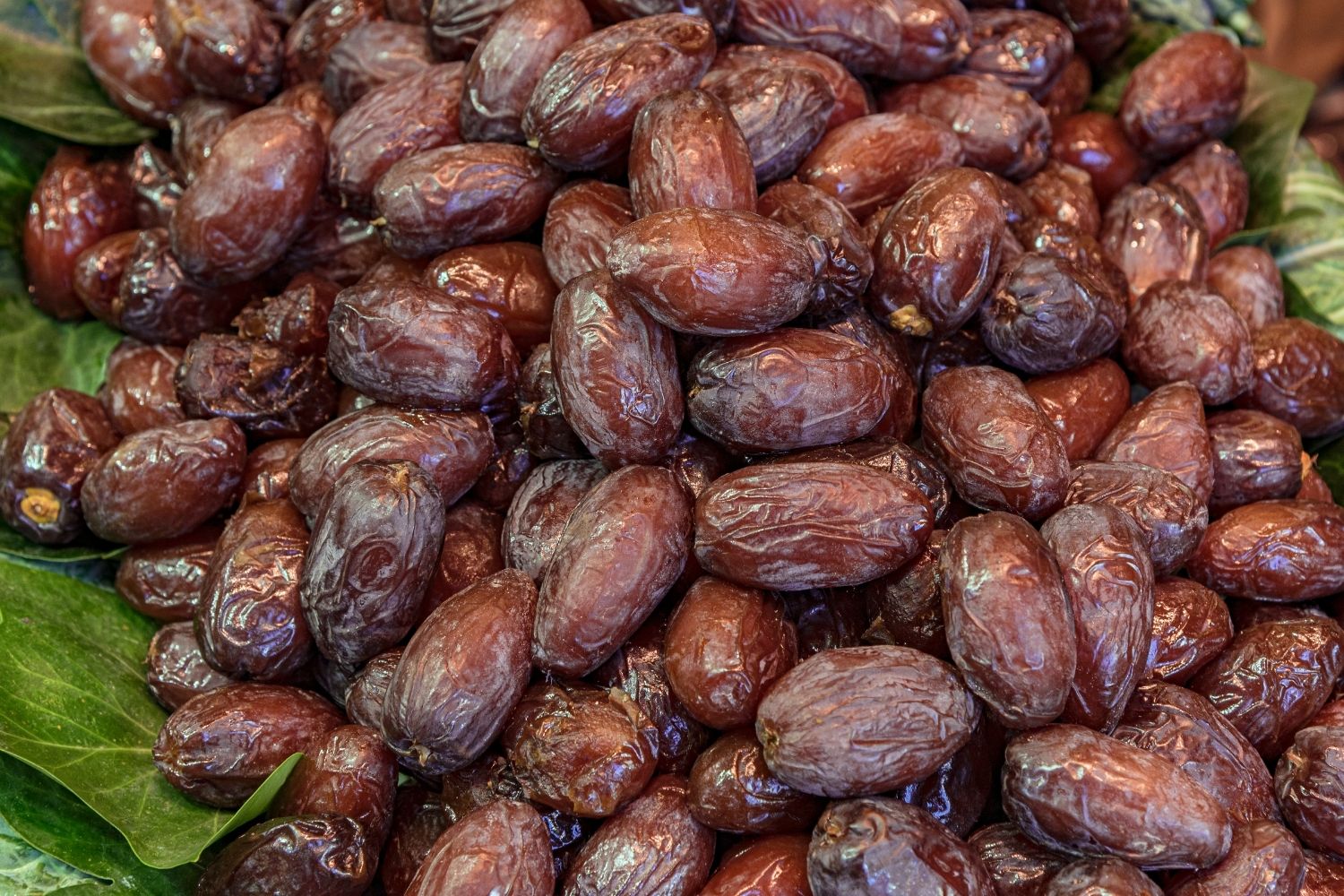Understanding Date Prices: Advice from Experts
27-04-2024
10:51

With the start of the date season, one of the most curious topics for both consumers and sellers is date prices. Platforms selling dates and date products, such as Hurmatat, are becoming an important guide for customers wondering how prices are shaped during this period and how they should determine their shopping strategies.
In this blog post, we will discuss the factors that affect date prices in detail and help you make informed choices in your date shopping with the advice we have received from experts in the field. We are ready to answer all your questions about understanding the fluctuations in date prices and how you can find this delicious fruit at the best prices.
In this blog post, we will discuss the factors that affect date prices in detail and help you make informed choices in your date shopping with the advice we have received from experts in the field. We are ready to answer all your questions about understanding the fluctuations in date prices and how you can find this delicious fruit at the best prices.
Key Factors Affecting Date Prices
There are a number of key factors that affect date prices, and each of these factors is intertwined with the dynamics between global markets and local economies. First, global production volumes form the basis for date prices. Major date-producing countries worldwide include Saudi Arabia, Iran, Egypt and the United Arab Emirates. Any changes in production in these countries can directly affect date supply, which in turn plays a role in determining prices.
Secondly, climate conditions are critical for date palm production. Temperature fluctuations, especially during the growth and fruiting periods of date palm trees, access to adequate water resources and other environmental factors directly affect production volume. Extreme heat or unexpected cold spells can reduce product quality and quantity, which can cause bottlenecks in the supply chain and increase prices.
Third, transportation and logistics costs have a major impact on date prices. Most dates are grown in remote areas away from consumption areas, creating a logistical challenge. Factors such as increases in fuel prices, maintenance costs of vehicles used in transportation, or changes in international shipping routes can directly affect end-consumer prices.
The fourth factor is international trade policies. Tariffs, taxes and trade agreements, especially in major date importing countries, can significantly affect date prices. Political instability or trade disputes can lead to severe restrictions on date imports and exports, which can cause fluctuations in market prices.
Finally, consumer demand is also an important factor.
Increases in demand for dates, especially during religious festivals such as Ramadan, may cause suppliers to temporarily increase prices. Additionally, changing health trends and wider acceptance of the nutritional value of dates may lead to a sustained increase in demand and therefore changes in price stability.
Increases in demand for dates, especially during religious festivals such as Ramadan, may cause suppliers to temporarily increase prices. Additionally, changing health trends and wider acceptance of the nutritional value of dates may lead to a sustained increase in demand and therefore changes in price stability.
Each of these factors interact to determine date prices and can make price predictions difficult for consumers and suppliers. It is important to constantly monitor and understand these dynamics to be a savvy consumer and informed seller.


Price Differences According to Date Varieties
Date varieties have a major impact on date prices, considering the unique characteristics and growing conditions of each. The different varieties of dates available in the market vary in taste, texture, size and intended use, which affects the price of each variety in different ways. Here are the main factors that affect the price differences by date variety
:
:
Medjool Dates: Medjool dates are among the luxury date varieties with their large size and rich, caramel flavor. This date, which is quite popular due to its soft texture and sweetness, is especially preferred in dessert making and direct consumption. Medjool dates have higher production processes and labor costs than other types of dates, so their prices are generally higher.
Deglet Noor Dates: Deglet Noor is another popular variety of date with a harder texture and less sweet flavor. These dates are processed and distributed in large quantities globally, as they are generally longer lasting and have a wider range of uses. Deglet Noor is generally less expensive than Medjool, due to the efficiency of its production and processing techniques.
Barhi Dates: Barhi is among the small and round dates that are ideal for fresh consumption. This variety of date scores high for sweetness and flavor, but prices may vary due to factors such as market availability and storage life. Barhi dates cater to a premium market segment, especially when consumed fresh.
Ajwa Date: The Ajwa date is a small variety of date that is highly prized, especially in the Middle East, and is associated with some traditional health benefits. The specific growing conditions and limited production capacity of the Ajwa cause this date to fetch a high price in the market.
Halawy and Khadrawy Dates: These varieties of dates are known for their softer texture and moderately sweet flavor. Halawy and Khadrawy are generally more affordable and available to a wide range of consumers.
Date prices vary greatly depending on the variety’s cultivation methods, harvest time, demand and market access. By considering these factors when purchasing dates, consumers can find the option that best suits their budget and taste.
Seasonal Changes and Their Effects on Date Prices
Seasonal changes are one of the most important factors affecting the prices of agricultural products, and date prices are also greatly affected by this situation. The harvest time of dates usually falls in the autumn months, and this period plays a decisive role in prices. Here are a few important points about the effects of seasonal changes on date prices:
Harvest Season: Date palms bear fruit once a year, so supply increases rapidly during harvest season. In years when the harvest is plentiful, prices usually fall as more dates are made available to the market. However, in years when the harvest is small due to adverse weather conditions, reduced supply can cause prices to rise.
Ramadan and Religious Festivals: Dates are a food consumed during the month of Ramadan, especially in the Islamic world, during the time of sahur and iftar. Increased demand during this period may temporarily increase the price of dates. During periods other than Ramadan, demand for dates may be lower, which may lead to seasonal decreases in prices.
Climate Changes: Global climate change can have direct effects on date palm production. For example, unexpected cold spells or extreme heat can negatively affect date palm growth and fruit yield. Such changes can create deviations from seasonal norms, resulting in higher or lower prices than expected.
Demand Fluctuations: Seasonal events and holidays can affect the demand for dates. During the tourist season in particular, tourist consumption of dates may increase, which can increase prices. Similarly, increased demand during local festivals or special occasions can affect the price of dates.
Storage and Storage Conditions: The storage period and conditions of dates can also affect seasonal price fluctuations. Proper storage conditions allow dates to be stored for long periods without spoiling, allowing for continued supply outside of the harvest period. This can help to balance supply throughout the year and prevent extreme price fluctuations.
The impact of seasonal changes on date prices is shaped by many different dynamics, and these variables present important opportunities and challenges for consumers and producers.


Expert Advice: What to Consider When Buying Dates?
There are some important points to consider when buying dates. Expert advice on choosing and buying dates can help you get the most out of date prices. Here are a few important criteria to consider when buying dates:
Date Variety: When buying dates, decide which variety you want to buy. Different varieties of dates offer different flavors, textures, and uses. For example, Medjool dates are sweet and large, while Deglet Noor dates can be firmer and less sugary. When choosing, choose the variety that best suits your intended use.
Freshness: The freshness of dates has a big impact on their quality and flavor. Fresh dates usually have a vibrant color and firm texture. If the dates are packaged, make sure the package is undamaged and there are no molds or abnormal spots on the dates.
Price Comparison: Date prices may vary depending on the variety and vendor. Compare prices from different vendors to find the option that best suits your budget. Also, buying in bulk can provide a price advantage.
Origin and Production Methods: The country where the dates come from and how they are produced are also important. Organic dates are usually more expensive but can be healthier because they do not contain pesticides. The origin of the date can also affect its taste and quality.
Seasonality: Date prices can change seasonally. Dates can be more affordable, especially during harvest season. Prices may increase before religious holidays such as Ramadan, as demand for dates increases. By following the periods when prices are low, you can find the chance to buy at more affordable prices.
Storage Conditions: Storing dates properly after purchase will help preserve their freshness. Dates should be stored in cool, dry places.
Additionally, storing them in airtight containers can extend their life.
Additionally, storing them in airtight containers can extend their life.
Health and Nutrition: Dates are rich in natural sugars, fiber, and various vitamins and minerals. If you are looking for a healthy option, you should choose dates that are grown with natural production methods and do not contain additives.
By considering these suggestions, you can choose the best dates to suit your needs and budget and ensure that your investment in buying dates is evaluated in the best way possible.
Ways to Save When Buying Dates
Saving money when buying dates can be important, especially if you eat them frequently. While the price of dates can fluctuate seasonally and vary, there are a number of ways to buy quality dates at affordable prices. Here are some strategies to help you save money when buying dates:
Buying in bulk: Buying dates in bulk often reduces the price per unit. Dates sold in large packages or boxes can be more affordable than smaller packages. This method is especially good for large families or frequent consumption.
Shop Seasonally: Date prices are usually lower during harvest season. Stocking up on dates during the new harvest season can provide an economic advantage when prices are higher. Also, shopping for dates before special periods like Ramadan allows you to buy at more affordable prices before demand increases.
Comparison Shopping: Compare prices across retailers and online stores to find the best price. Sometimes online platforms can offer more competitive prices than brick-and-mortar stores. Also, keeping track of discounts and promotions will help you shop at the right time.
Buying from local markets or directly from producers can cut costs by eliminating middlemen. Local farmers markets tend to offer fresh, affordable dates.
Focus on Quality: Lower quality dates can often be cheaper, but you’ll usually end up eating more of them. Higher quality dates can be more economical because they’re more filling and stay fresh longer.
Pay Attention to Storage Conditions: Storing dates correctly prevents waste and provides savings in the long run. Storing dates in cool, dry and airtight containers prevents them from spoiling and allows them to be consumed for a longer period of time.
Subscription Models for Regular Consumption: Some retailers offer subscription models for regular deliveries, which provide a regular supply of dates, often at a lower cost than retail prices.
By using these strategies, you can achieve significant savings when purchasing dates without compromising on quality and while maintaining your budget with affordable date prices.
Hurmatat is here with you with the most natural, high quality and affordable date products!
You can read this article for all your questions about fresh dates: Secrets of Fresh Dates: Health and Taste
